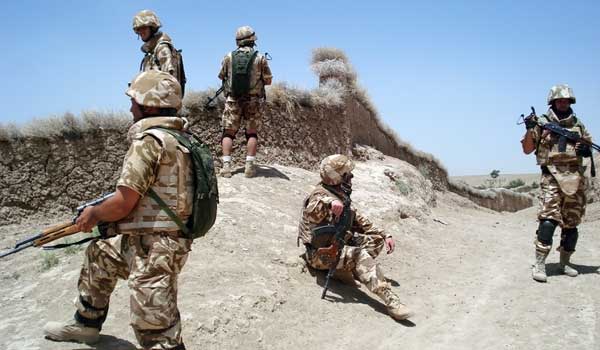Veterans in College Face Higher Risk of Suicide

WASHINGTON – U.S. military veterans in college are at significantly greater risk of thinking about and attempting suicide than the general college student population, according to a new study.
Nearly half the veterans in the study said they had had suicidal thoughts at some point, and one-fifth said they had planned to kill themselves. The percentage of student veterans who said they had attempted suicide was six times higher than that of the general college student population.
"These alarming numbers underscore the urgent need for universities to be adequately staffed and prepared to assist and treat student veterans," said study researcher M. David Rudd, of the University of Utah.
An estimated 1 million veterans will enroll in college over the next decade, Rudd said.
Right now, "I don't think [colleges] are very well prepared" to meet the mental health demands of returning veterans, Rudd said. Part of the problem may be lack of awareness, he said. Rudd's study was the first to look at psychological symptoms in student veterans.
The study was presented today (Aug. 4) at the American Psychological Association's annual meeting here. Alarming risk Suicides among military servicemen and women have surged in recent years. Between 2002 and 2009, army suicides more than doubled. "This problem doesn’t go away once somebody separates from service," Rudd said. [See After the Battle: 7 Health Problems Facing Veterans] Rudd and colleagues examined survey results from a nationally representative sample of 525 student veterans whose average age was 26. Nearly all had been deployed to the wars in Iraq or Afghanistan, and close to 60 percent said they had experienced combat. Forty-six percent said they had had suicidal thoughts at some point in their lives, 20 percent reported having suicidal thoughts and a plan to carry it out, about 10 percent said they thought of suicide very often, 7.7 percent reported attempting suicide, and 3.8 percent said a suicide attempt was either likely or very likely. Eighty-two percent of those who attempted suicide also struggled with significant post-traumatic stress disorder symptoms, Rudd said. Among the general student population, 6 percent said they have seriously considered suicide and 1.3 percent reported a suicide attempt, according to a 2010 survey from the American College Health Association. "These numbers were far higher than anticipated," Rudd said, and show that veterans are "having dramatically more difficulty than the typical student," he said. Rudd said he has spoken with student veterans who say they feel socially isolated or detached from other college students. As a result of their experience, "they have a hard time relating to the typical 18-, 19-, 20-year-old student," Rudd said. Social separation can make it more difficult to deal with emotional issues, Rudd said. College preparedness "As nearly 2 million veterans return home from deployments overseas, the decade-long wars in Iraq and Afghanistan will have unanticipated impact on college and university campuses," Rudd said. Colleges need to have a way to give social support to veterans, Rudd said, such as creating a student veteran support center on campus, he said. He also suggested increased partnership between the Department of Veterans Affairs and universities. In addition, college counselors should have expanded training to help them recognize and treat combat-related trauma, Rudd said. However, there are obstacles to identifying student veterans who are having problems , Rudd said. "As with active-duty military, it is somewhat challenging to get student veterans to ask for help when they are having serious mental health problems," Rudd told MyHealthNewsDaily. "It appears to be tied to what's been referred to as a 'warrior mentality,' that is, that emotional struggles are a sign or symptom of personal weakness or failure," he said. Rudd said colleges may consider having separate orientations for college student veterans, just as there are separate orientations for freshman and transfer students. These would allow colleges to both identify how many veterans they have, and screen them to see if they are having difficulties. Pass it on: Colleges should take steps to make sure they are prepared to assist and treat students returning from military service.
This story was provided by MyHealthNewsDaily, a sister site to LiveScience. Follow MyHealthNewsDaily staff writer Rachael Rettner on Twitter @RachaelRettner.
Sign up for the Live Science daily newsletter now
Get the world’s most fascinating discoveries delivered straight to your inbox.

Rachael is a Live Science contributor, and was a former channel editor and senior writer for Live Science between 2010 and 2022. She has a master's degree in journalism from New York University's Science, Health and Environmental Reporting Program. She also holds a B.S. in molecular biology and an M.S. in biology from the University of California, San Diego. Her work has appeared in Scienceline, The Washington Post and Scientific American.









